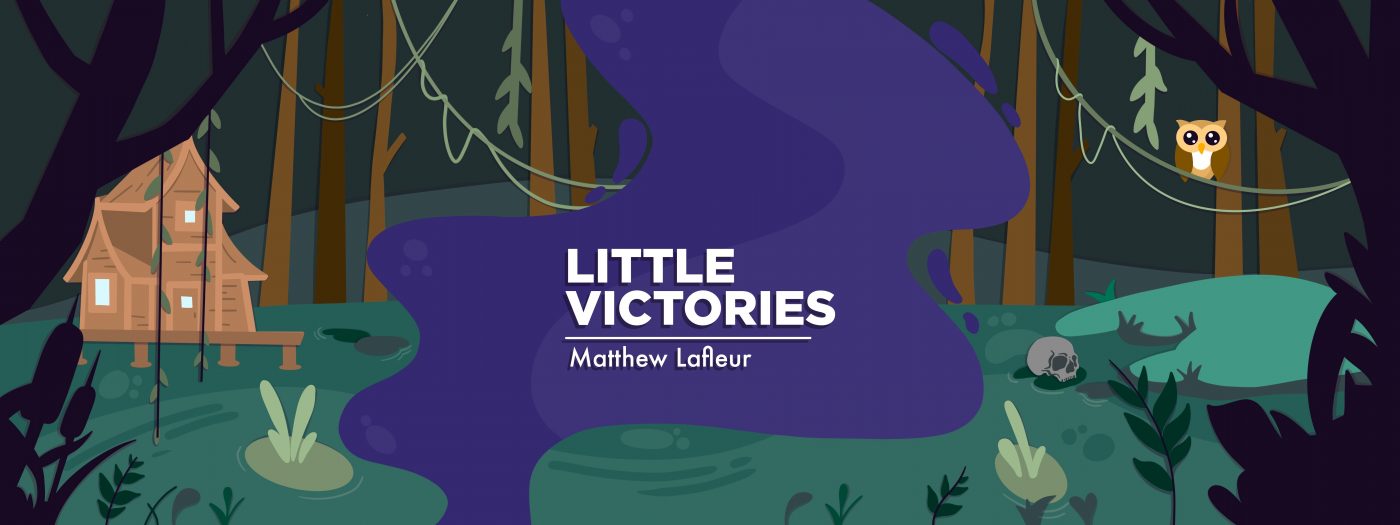Growing up with FA while yawning through a superhero movie
Contemplating a pair of origin stories: Mine and a walking, talking raccoon's

As I sat in the darkened movie theater recently, the screen showed a colossal battle filled with too much reliance on CGI.
I yawned and checked my watch. Not even halfway into the movie’s run time and I was already losing interest. I was surprised that the scene bored me since I’ve always been a fan of superhero movies and captivated by their over-the-top battle scenes.
I wondered if my response was what it was like to grow up — to lose pleasure in things that enthralled me in childhood.
It’s true that I enjoyed the major storyline of the movie, “Guardians of the Galaxy Vol. 3.” It tells the origin of Rocket, the cartoonish, anthropomorphic raccoon hero. Foreshadowing this exploration, one of the movie’s opening shots was of Rocket looking lonely as the acoustic version of “Creep” by Radiohead filled the theater.
“But I’m a creep
I’m a weirdo
What the hell am I doin’ here?
I don’t belong here.”
I looked down from the teary eyes and animated whiskers of the raccoon on screen to the sleepy eyes and whiskers of my service dog, Zeego, about to nap on the floor near my wheelchair.
Despite being bored by much of the movie, I could identify with Rocket. I’ve commonly felt like a misfit, mostly because of my rare disorder, Friedreich’s ataxia (FA). It seems that feeling lonely is pretty standard among those of us in the FA community.
After I realized the huge battle scene bored me, I wondered if FA had finally forced me to grow up.
The origin
Although I see some similarities between my life and many superhero origin stories, I knew that I was no hero, and my FA diagnosis wasn’t a superhero origin story.
Since FA symptoms typically become apparent in patients’ teenage years, a time of peak social conformity, many with FA learn to see themselves as outcasts. I definitely did.
Feeling betrayed by and disappointed in my own abilities was unspeakably tragic and lonely. In my teenage stubbornness, I refused to seek out others in the FA community. I didn’t even open up to my sister, who also has FA.
I was embarrassed by my disorder and too ashamed to talk about it. I think many in the FA community have experienced some form of this confusing hurricane of emotions.
Given that, it’s no surprise that many of us enjoy superhero stories. They allow us to escape from the sad reality of FA.
The epic battle
In my younger years, I cheered as I watched epic cinematic battles with a lot of CGI. It was easy for me to ignore FA and forget about its difficulties. But the thing about progressive disorders is that you can’t forget about them forever. My FA progression was pretty severe after I finished graduate school. I couldn’t ignore it any longer.
I finally reached out to the FA community in my mid-20s. I don’t know what I expected. Maybe some solidarity, or to be in the know on the latest research into FA. Or maybe I was longing for a place where I belonged.
I’m happy to say I found all three.
The conclusion
Although I’m not as excited about superhero movies as I once was, I realize I haven’t entirely grown up.
Maybe I’m disillusioned by this genre not because I have FA, but because I don’t need to look to a screen to witness people overcoming incredible odds. I can see that in my family and the global FA community — and maybe in the mirror.
With less CGI.
End-credits scene
Since May is FA Awareness Month, with Saturday the 20th as FA Awareness Day, I encourage readers to take one of these heroic actions:
Tell your physician you want a genetic test if you have symptoms or a family history of FA. A few months ago, the first treatment for FA, Skyclarys (omaveloxolone), was approved. Hopefully, its reach will be expanded, but so far it’ll soon be available for U.S. citizens age 16 and older who have the right genetic test results.
Help spread awareness by talking about FA to those who’ve never heard of it.
Meet others like you, if you’re a member of the FA community. Sign up for the FA News Forums on this site or apply to become a Friedreich’s Ataxia Research Alliance ambassador. Just as Rocket found Groot (another “Guardians” character, this one treelike), even heroes who feel like creeps and weirdos can find solidarity. You’re not as alone as you sometimes think.
We’re not as alone as we sometimes think.
Note: Friedreich’s Ataxia News is strictly a news and information website about the disease. It does not provide medical advice, diagnosis, or treatment. This content is not intended to be a substitute for professional medical advice, diagnosis, or treatment. Always seek the advice of your physician or another qualified health provider with any questions you may have regarding a medical condition. Never disregard professional medical advice or delay in seeking it because of something you have read on this website. The opinions expressed in this column are not those of Friedreich’s Ataxia News or its parent company, Bionews, and are intended to spark discussion about issues pertaining to Friedreich’s ataxia.








Lori DePorter
I see you as a superhero rockstar-you managed to weave CREEP into your column…that’s impressive. As a colleague, you have been a mentor since I started. Keep on keeping on …. And watch the 80’s movie The Breakfast Club - it is better than a superhero movie…